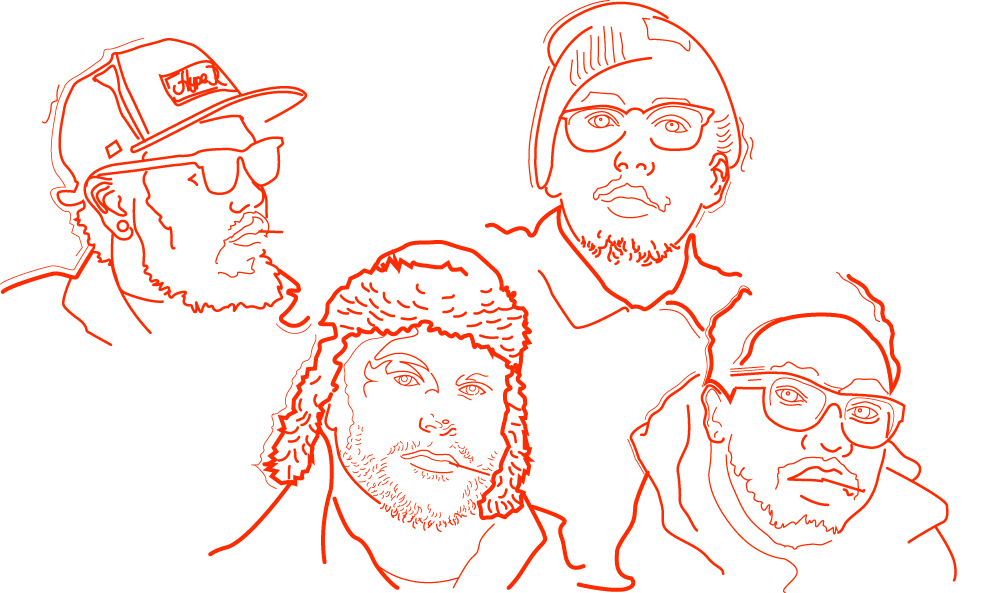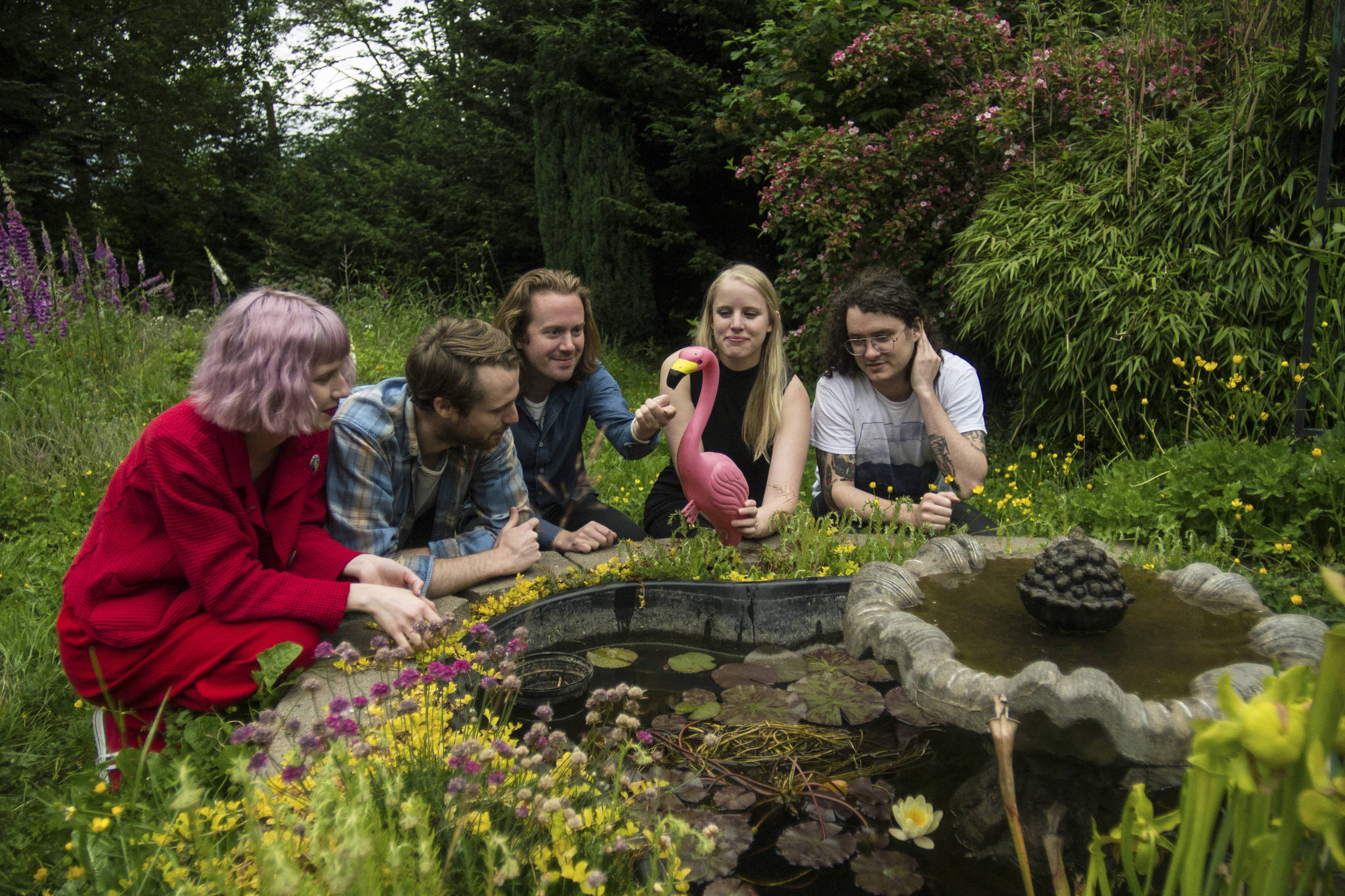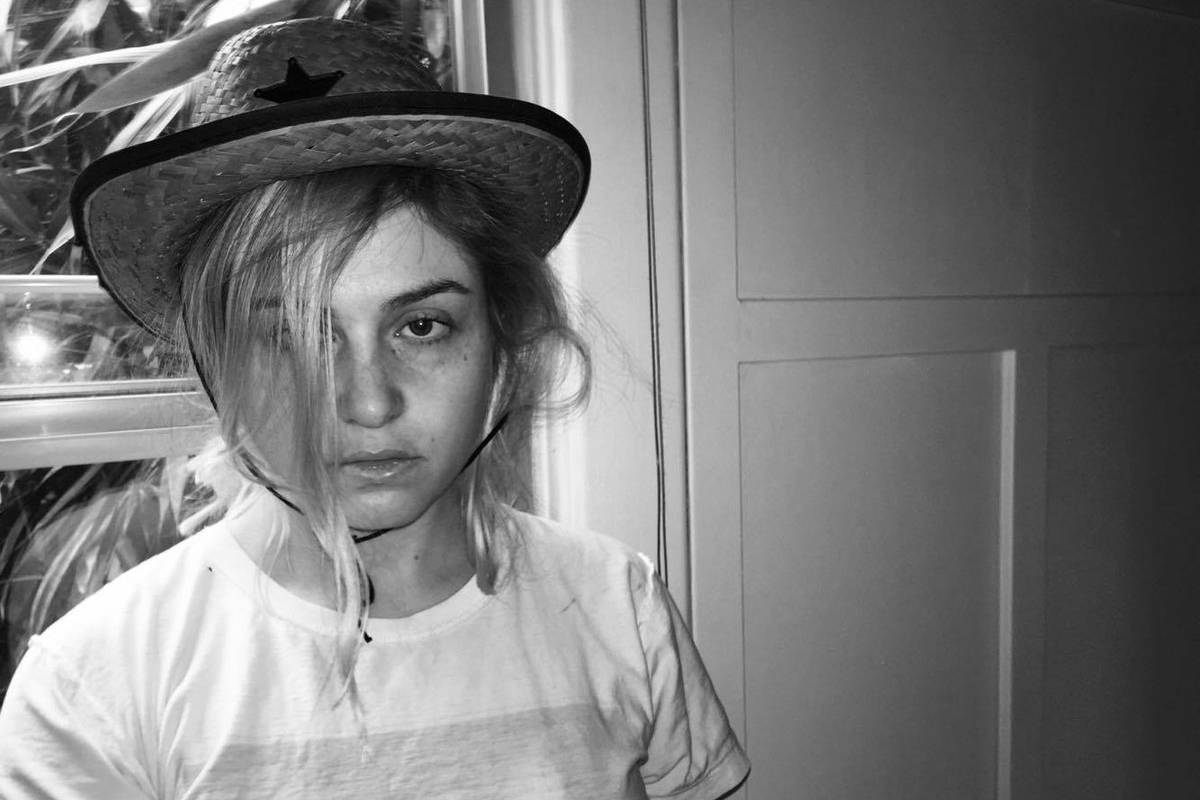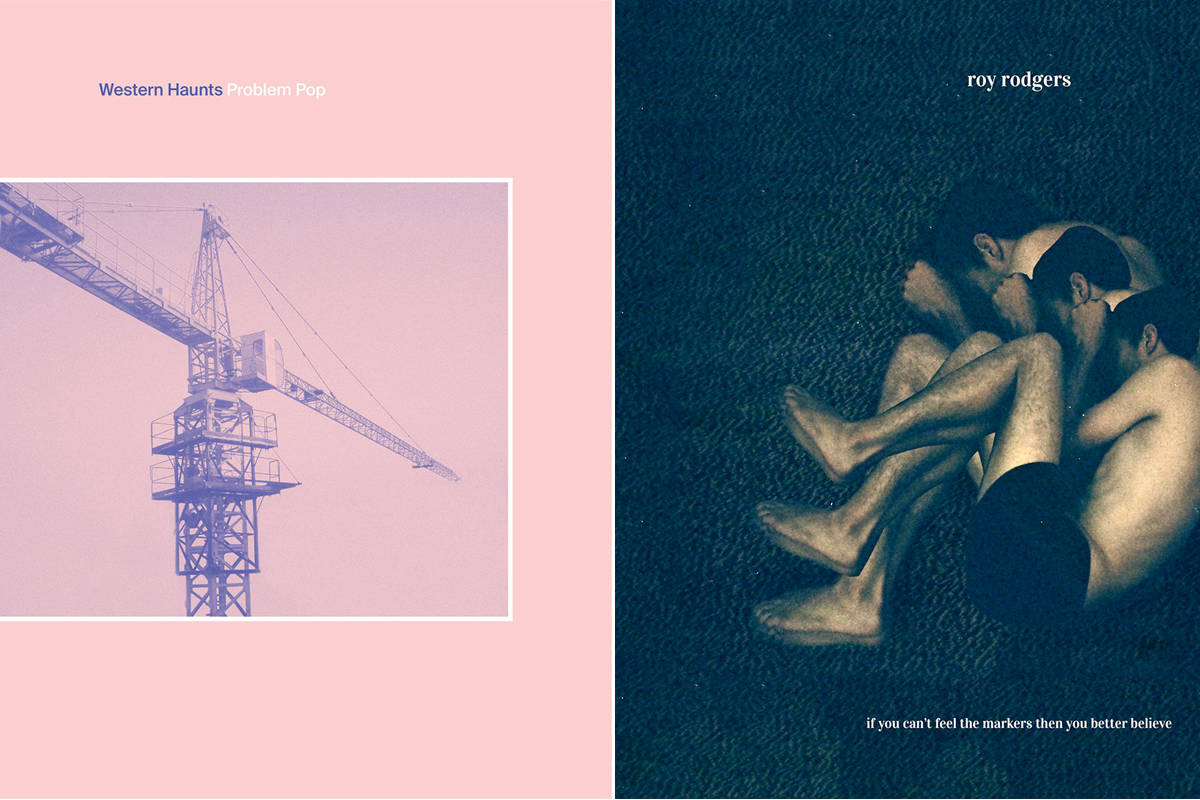Seattle hip-hop group Nu Era pairs experimental production with an old-school crew mindset. They trade verses like Wu-Tang and vibe like a Black Hippy cypher. But Nu Era isn’t just about reviving an era of the genre—for rappers Andrew Savoie, Blaine Rochester, Chimaroke Abuachi, and Zac Millan, it’s about healing.
“Half the time when we meet up, we don’t talk about music—it’s like therapy sessions,” Savoie says. “We might be [in the studio] for five to six hours; two or three of those hours are just talking about life, venting and just hanging out.”
While the rappers have had their own projects and vied for success independently, Nu Era has kept them grounded in why they create.
“It’s always been that thing to get me through the tough times,” Millan says. “That’s something I really re-realized recently, going full circle. Creating because I pretty much might put a fucking bullet in my head if I didn’t.”
These emotions are vivid throughout their new sophomore album, Armadilla Lexus. To really understand the depth of Nu Era’s bond requires understanding their individual backgrounds.
Before Zac Millan
started spitting on the mic as Turtle T, he was steeped in breakdancing. He started in high school, mostly to “impress the ladies,” he says, but ended up falling in love with it. By the time he hit high school, he had a full crew and was regularly doing dance battles. Once he started hanging out around the Shoreline Rec, he met Nesto, who put him on an alternating regimen of breakdancing and freestyling.
His breakdancing days were cut short, however, after a hip injury. But once he recovered, he made his first track with Nesto, and soon found himself jumping on more and more tracks. Eventually he’d meet Savoie at a house party (more on that later), leading the two of them to start the group Hushd Puppies. Around this same time he joined the jazz-influenced DynoJamz, who went on to win EMP’s Sound Off! competition in 2009. After playing a slew of shows, Millan found himself exhausted. Splitting ways with the group, Millan began focusing on his work with Savoie and working on solo projects.
Andrew Savoie is a native of Portland from an intensely musical family. His dad was a touring guitarist and pianist, and all five of his siblings grew up playing instruments. When his older brother moved to Brooklyn, he started sending Savoie tapes, educating him on East Coast hip-hop. Eventually Savoie started to find things on his own. “I knew what was on the radio . . . but I got really into stuff that you couldn’t hear on the radio,” Savoie says.
Soon he started making tapes of J Dilla and Jurassic 5 cuts with his friend Marshall, practicing rapping over the instrumental. Eventually they’d form the Def Minds Crew together and perform around Portland. Just as his musical output started to boom, tragedy with another friend prompted a change in his life.
“Around that time after high school my best friend died, so I kind of was like, ‘I need to get the fuck out of Portland,’ ” he says. He made his way up to Seattle, not familiar with the scene at all. On his second day in town, he and his roommates threw a housewarming party and a mutual friend invited Millan. Savoie put on some beats and Millan started freestyling. Throughout the night they went verse for verse. Impressed by Millan’s abilities, the two decided to start the group Hushd Puppies.
Around this time Savoie also discovered Cornerstone, a hub for hip-hop brewing in Seattle. It was here that he met Abuachi and Rochester. They started recording a new album that was intended for Hushd Puppies, but they ended up deciding it was was its own thing. Thus, Nu Era.
“I came up in a very poverty-stricken, redneck, racist background of small-town bigotry and grew up pretty broke,” Blaine Rochester, aka 5 Flat, says of his hometown of Yelm. In high school, he got a job as a dishwasher. He’d use the time to put on instrumental tracks he grabbed off Napster, playing them in the background while he scrubbed plates and bowls.
“I would sit there in the dish pit, come up with one line at a time, and write it on a paper placemat,” he says. “By the end of my shift I would have a whole page memorized.” Eventually he started recording demos with friends. After finishing his degree at Eastern Washington University, he enrolled at Seattle Art Institute to try his hand at audio engineering. It was here that he recorded DynoJamz as a student project, even becoming a hype man on one of the tracks.
In 2010 he finally released his first recording, Tuition: The Mixtape, a concept record about using music to pay for student loans. Around this time he started hanging out around Cornerstone, offering to record artists for cash or weed. Having already built a bond with Millan and Savoie during the DynoJamz sessions, he started hopping on Hushd Puppies tracks. Soon the guys decided to bring him in as they morphed into Nu Era.
Chimaroke Abuachi, aka Chima, started performing at 17 with his church youth group, which received funding from Jimi Hendrix’s sister, giving them access to high-quality gear and studio equipment. Abuachi fell in love with the craft. It wasn’t long before he and some friends started the short-lived group Archetype, which eventually fell apart as people went off to college. Later, he and a friend started Theoretics, a socially conscious hip-hop group with a full band.
“I loved being a part of that group,” Abuachi says. “There was a point where the performance was good, like really high-energy.”
After playing Bumbershoot, Capitol Hill Block Party, and Sasquatch all in one year, Abuachi left the group, wanting something more like an old-school hip-hop crew. “Theoretics was very positive and preachy at times, and I just felt like that wasn’t me,” he says. “I don’t want to say dark, but I tend to stick with the really real shit.” He knew the Nu Era crew from the open mics at Cornerstone, and fatefully ended up falling into the fold.
music@seattleweekly.com
Armadilla Lexus is out now at nueramusic.bandcamp.com.
Seattle Weekly is your source for local music news and reviews. If you know something we should know, e-mail music@seattleweekly.com. Follow us on Facebook and Twitter.








